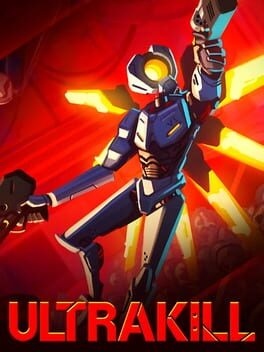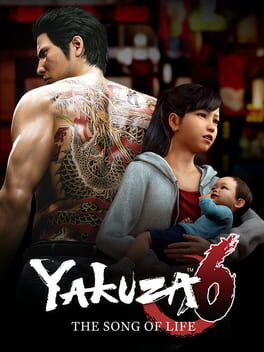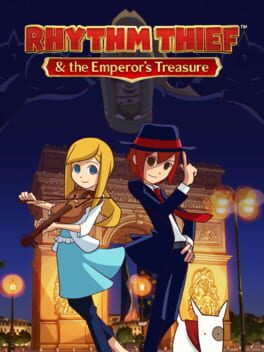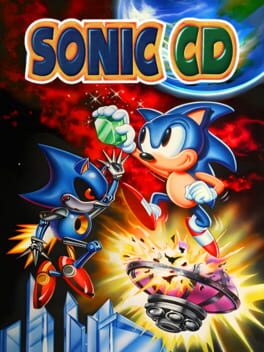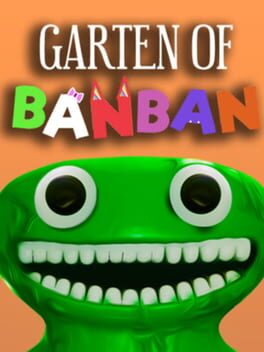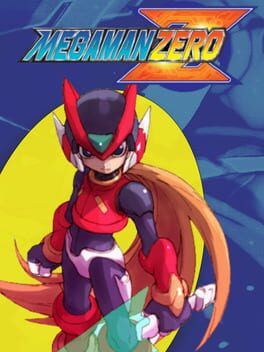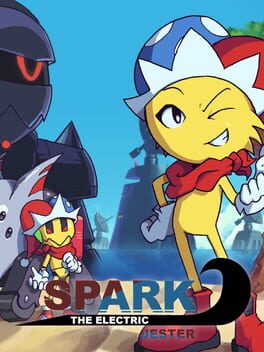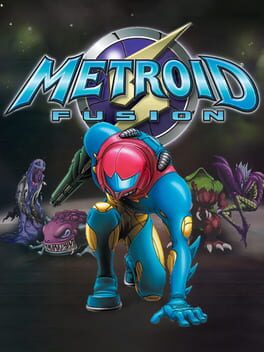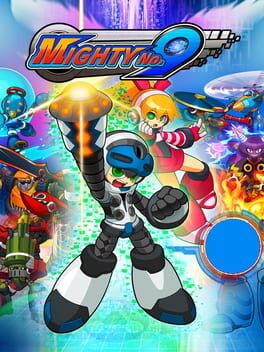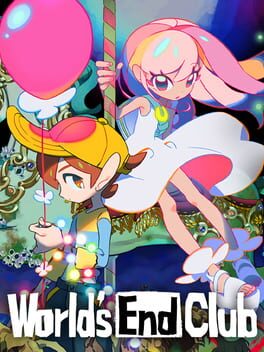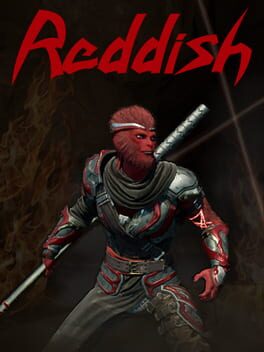silverus
276 Reviews liked by silverus
Ultrakill
2020
A fitting and beautiful sendoff to Kiryu and the Dragon Saga. 6 tackles the themes of fatherhood and the different types of bonds formed through it. This entry feels way more grounded than the others; it feels more personal and rough while also showing Kiryu in a different light compared to his other appearances (except 5). He's willing to fight and do anything to protect those he loves, and he really feels backed up by his "I'm not a saint" statement on this one.
The cast of 6 is top tier as well. The Hirose Family are a fun addition and I love all of them. They really do feel like a family (i know this is corny) who are there for each other and fight for one another, Nagumo and Yuta are both really good. Someya is great as well, he brings a "new vs old" feel to the game that conflicts Kiryu (and basically every main member before this game), while also having great characterization and one I felt for at the end.
There are definitely some issues with the game. Story-wise, the final boss is pretty bad. You can say he fits thematically all you want, but there's really not enough buildup at all to justify HIM as the big mastermind. The game starts to falter around the middle, as well. The big secret is way too hyped up for what it is and although it KINDA make sense after it's all explained, it just felt stupid.
Gameplay-wise, yeah it's rough. It's too weighty, it feels off, grabs kinda suck, the combo pause when they block is annoying, etc. I'm probably one of the few people that think it's actually fine, but that could just be because I decided to max all skills and get most of my stats to around 300. It's weird, repetitive, and you will definitely want to go back to the PS3 era of how it's done. It works, but it's really not great.
I think Onomichi is a really fun place to explore, it's compact and small but it kind of reminds me of Okinawa in a way? They're just kinda cozy and I think they're great. Also, substories in this one are fun here too. Ono Michio.
Overall, 6 manages to give Kiryu the closure he's needed all these years and does so in a beautiful way, telling a heartfelt and emotional story that although falters in some areas, will have you satisfied by the end of it. Well until 8 got announced.
PS: why is akiyama here
The cast of 6 is top tier as well. The Hirose Family are a fun addition and I love all of them. They really do feel like a family (i know this is corny) who are there for each other and fight for one another, Nagumo and Yuta are both really good. Someya is great as well, he brings a "new vs old" feel to the game that conflicts Kiryu (and basically every main member before this game), while also having great characterization and one I felt for at the end.
There are definitely some issues with the game. Story-wise, the final boss is pretty bad. You can say he fits thematically all you want, but there's really not enough buildup at all to justify HIM as the big mastermind. The game starts to falter around the middle, as well. The big secret is way too hyped up for what it is and although it KINDA make sense after it's all explained, it just felt stupid.
Gameplay-wise, yeah it's rough. It's too weighty, it feels off, grabs kinda suck, the combo pause when they block is annoying, etc. I'm probably one of the few people that think it's actually fine, but that could just be because I decided to max all skills and get most of my stats to around 300. It's weird, repetitive, and you will definitely want to go back to the PS3 era of how it's done. It works, but it's really not great.
I think Onomichi is a really fun place to explore, it's compact and small but it kind of reminds me of Okinawa in a way? They're just kinda cozy and I think they're great. Also, substories in this one are fun here too. Ono Michio.
Overall, 6 manages to give Kiryu the closure he's needed all these years and does so in a beautiful way, telling a heartfelt and emotional story that although falters in some areas, will have you satisfied by the end of it. Well until 8 got announced.
PS: why is akiyama here
Sonic CD
1993
Thanks to Xyloverse for watching me stream this and play through this game twice in one sitting. I genuinely can't believe I've known a fair amount about this game for so long yet have just now gotten to playing through it for the first time.
Sonic CD is a strange game. Not really concerned with pushing the Sonic formula forward as it is bringing its own spin on things by sidestepping straight Innovation in exchange for having some of the most experimental design in the series. Levels are twisted playgrounds of all sorts of different ideas and mechanics and feels it yearns to be more deeply explored through all the past-present-future possibilities rather than strictly sped through, with continuous speed more or less rewarding you with the ability to travel to the different times. Even outside of things mechanically being different in the same stage for the different times, I found the drastic aesthetic changes more than incentive enough to at least attempt to see every possible version of each stage. Which I wasn't able to do in two playthroughs myself so I think it speaks for itself that this game has almost endless replayability with how differently you can approach levels.
It certainly isn't without its faults as not all levels are necessarily great and some mechanics aren't as fleshed out as much as they could have been, but Sonic CD comes together as such a unique experience that I think everyone interested in video games should at least play once to at least witness its beauty in action. That and play with Japanese audio if you can, the music is way better in that version and it even has an exclusive final boss theme that was completely scrapped from the American release and replaced by the normal boss theme.
Sonic CD is a strange game. Not really concerned with pushing the Sonic formula forward as it is bringing its own spin on things by sidestepping straight Innovation in exchange for having some of the most experimental design in the series. Levels are twisted playgrounds of all sorts of different ideas and mechanics and feels it yearns to be more deeply explored through all the past-present-future possibilities rather than strictly sped through, with continuous speed more or less rewarding you with the ability to travel to the different times. Even outside of things mechanically being different in the same stage for the different times, I found the drastic aesthetic changes more than incentive enough to at least attempt to see every possible version of each stage. Which I wasn't able to do in two playthroughs myself so I think it speaks for itself that this game has almost endless replayability with how differently you can approach levels.
It certainly isn't without its faults as not all levels are necessarily great and some mechanics aren't as fleshed out as much as they could have been, but Sonic CD comes together as such a unique experience that I think everyone interested in video games should at least play once to at least witness its beauty in action. That and play with Japanese audio if you can, the music is way better in that version and it even has an exclusive final boss theme that was completely scrapped from the American release and replaced by the normal boss theme.
Garten of Banban
2023
Yakuza 0
2015
there’s dignity and honor in fighting, depending on who you ask. old men obsess and cling to this ideology, and in some ways it blinds them. blinded from ways of change; ideas that sprout anew in a time of economic boom and societal maturity. the old men consider it noble to defend their decaying ways, yet all the young want to do is break away from such. they fight not out of pretentious beliefs, but out of the need for expression, even if frequently careless. fighting becomes a common resolve between generations. both sides, young and old, fight unbeknownst of the weight they carry, merely knowing they need to fight back. fighting is their lifeblood, fighting is what defines who they are.
but fighting also turns into work. working towards self-righteous pursuit of a measly three squares obviously, but also towards money. money rests as less of an objectified obstacle and more as fuel that drives people’s spirits. in 1988 japan, money does actually make people happy, apparently. though despite what could be inferred… money can’t buy you everything. greed knows no bounds, and thus blurs the line between the economy and violent criminalized pavements. sure, you can pay, but it may only be your fists that let transactions sail, and the cost deadly.
yakuza 0’s ambitious nobility is arguably its defining characteristic. a sublime display of the series’ themes at birth. kamurocho and kansai suddenly become retro, and their industrialized features vanish. the cities proudly wear their grassy riversides and primitive slums on their sleeves. the usual trouble still familiarly runs amok though! style-switching a la DMC lends itself well to the series’ staple combat. always keeping the sense of urgency and energy pulsing throughout the veins of every battle.
fighting is the founding postulation of yakuza’s society. political disputes, romantic conflicts, street confusion, hell even entertainment; all act as open air for violence to spread its wings. y0 paints these outlets similarly to its brethren but in a fresh new-age way. i think some of the praise has been wildly misplaced but it holds weight in where it roots. yakuza 0 is a damn good yakuza game and stands proud as one the defining titles for its generation. not sure what else to say really, everybody gets what makes it so good. one of the only prequels i know that branches out to become a significant starting point for its series. definitely deserves the various titles and acclamation it’s received over the years.
but fighting also turns into work. working towards self-righteous pursuit of a measly three squares obviously, but also towards money. money rests as less of an objectified obstacle and more as fuel that drives people’s spirits. in 1988 japan, money does actually make people happy, apparently. though despite what could be inferred… money can’t buy you everything. greed knows no bounds, and thus blurs the line between the economy and violent criminalized pavements. sure, you can pay, but it may only be your fists that let transactions sail, and the cost deadly.
yakuza 0’s ambitious nobility is arguably its defining characteristic. a sublime display of the series’ themes at birth. kamurocho and kansai suddenly become retro, and their industrialized features vanish. the cities proudly wear their grassy riversides and primitive slums on their sleeves. the usual trouble still familiarly runs amok though! style-switching a la DMC lends itself well to the series’ staple combat. always keeping the sense of urgency and energy pulsing throughout the veins of every battle.
fighting is the founding postulation of yakuza’s society. political disputes, romantic conflicts, street confusion, hell even entertainment; all act as open air for violence to spread its wings. y0 paints these outlets similarly to its brethren but in a fresh new-age way. i think some of the praise has been wildly misplaced but it holds weight in where it roots. yakuza 0 is a damn good yakuza game and stands proud as one the defining titles for its generation. not sure what else to say really, everybody gets what makes it so good. one of the only prequels i know that branches out to become a significant starting point for its series. definitely deserves the various titles and acclamation it’s received over the years.
Yakuza 0
2015
This game is the 3rd worst game in the franchise and that says a lot considering it's still an 8/10 but my god this game is overhyped to the point where it feels like people are blatantly ignoring this game's flaws
The final antagonists for both protagonists are genuinely so boring that it takes away all the emotions from the final fight, especially for Majima. This is made worse when you consider that Majima is leagues better than Kiryu in this game, I'm guessing for a younger version of Kiryu they wanted to make him more "nuanced", that's why he beats up an innocent man in the beginning
But that nuance takes him nowhere and is quickly forgotten, he's so completely and utterly boring in the story whenever he's not with Nishiki. I love the dynamic those two have, but whenever Kiryu's not playing off of Nishiki, he just becomes so boring.
The game has glaring flaws, it's a really solid story but a few thing hamper it from reaching greatness
Yakuza 3 is better.
The final antagonists for both protagonists are genuinely so boring that it takes away all the emotions from the final fight, especially for Majima. This is made worse when you consider that Majima is leagues better than Kiryu in this game, I'm guessing for a younger version of Kiryu they wanted to make him more "nuanced", that's why he beats up an innocent man in the beginning
But that nuance takes him nowhere and is quickly forgotten, he's so completely and utterly boring in the story whenever he's not with Nishiki. I love the dynamic those two have, but whenever Kiryu's not playing off of Nishiki, he just becomes so boring.
The game has glaring flaws, it's a really solid story but a few thing hamper it from reaching greatness
Yakuza 3 is better.
Mega Man Zero
2002
When Ciel resurrects Zero in that abandoned underground laboratory, her circumstances are at their most dire.
The dwindling population of reploids live under the threat of immediate genocide they remain powerless to impede; a massive energy shortage crisis looms in the horizon, promising to bring about mass apocalypse. Heck, right before Zero awakens, Ciel can do nothing but watch as her lapse of judgment continues to befell her, as all her companions are mercilessly slaughtered, slayed and sacrificed before her eyes, leaving her as the last one standing. Zero is quite literally her last hope at achieving world peace.
When Zero offers assistance towards Ciel's plight, the situation is far, far worse than one might think.
The resistance base is restrictive and compact; the rebellion's continuously failing efforts to fight back against the constant onslaught of vicious enemy assault have shrunken their numbers and their territory. They are constricted, trapped, and foolishly stepping foot outside the borderlines of the base practically guarantees instant death. This gives the base and its surrounding areas where missions take place a sense of connection, establishing the connective tissue that forms Mega Man Zero's worldbuilding. It's fittingly small in size to encompass the dire situation and lack of breathing room faced by the resistance, emphasising the importance of Zero's mission - should he fail, even this morsel of ground the resistance occupies will crumble underneath the tremendous pressure.
When Zero emerges from a century of cryogenic sleep without the memories of his past, its almost as if a toddler was plunged into a battle against trained soldiers.
At the beginning of Mega Man Zero, Zero is seemingly just as powerless as the Reploids he's tasked with defending. Every slash of the saber is heaved with mounds of great effort, and every bullet of the buster feels as if they barely leave a dent against the powerful adversaries Zero faces. This induces a sense of brutality within the gameplay, as every enemy is relentless and unforgiving, and every boss fight serves as an immovable barricade. This game wants you to feel the struggle the resistance is coping with in their uphill battle, and that is evident in how difficult this game is compared to every other entry in the series.
However, with every small victory Zero and the player steal from the jaws of defeat, the paradigm of the war begins to shift in the resistance's favour ever so slightly.
The previously barren corridors of the resistance base slowly grows in numbers as Zero saves each and every one of them from peril, providing a sense of accomplishment and proving your efforts weren't meaningless. But more importantly, every successful mission gradually imbues a glimmer of hope - Zero's abilities and swordsmanship gradually return to him as the game progresses, and soon enough, he's the unstoppable force that legends spoke of, a shining beacon of hope that is pivotal to the growing numbers of the resistance. Previously daunting obstacles are now taken care of in a few slashes, and the bosses that once terrified you are now seen as a fair challenge. Still an arduous task that requires great hardship and sheer will to overcome, but one that can be handled painlessly if the player has mastered the gameplay loop of Mega Man Zero. Combined with the fluidity of Zero's movement and the satisfaction of executing masterful slashes against the incoming horde of enemies, the latter half of the game injects a subtle feel-good factor within the player. Just like the resistance, they will begin to believe that maybe, just maybe, they can fully overcome the harrowing obstacles laid before them and emerge victorious.
Even when Zero finally infiltrates Neo Arcadia and deals the critical slash that eliminates the threat of Copy X, victory is yet to be ascertain - the looming threat the energy shortage crisis still dances dangerously on the brink, and while the resistance can rest easy for the moment, they still have the rest of the world to reclaim from the oppression of Neo Arcadia. With Zero leading the charge, though, they have someone to look towards.
Total victory may be far off reach for now; but the resistance are slowly beginning to fight back.
This shit is better than Sonic Forces and it's not even close LMAO
Final score: 8/10
Focus: The overall tone of Mega Man Zero and how it complements the narrative and difficulty of the gameplay.
The dwindling population of reploids live under the threat of immediate genocide they remain powerless to impede; a massive energy shortage crisis looms in the horizon, promising to bring about mass apocalypse. Heck, right before Zero awakens, Ciel can do nothing but watch as her lapse of judgment continues to befell her, as all her companions are mercilessly slaughtered, slayed and sacrificed before her eyes, leaving her as the last one standing. Zero is quite literally her last hope at achieving world peace.
When Zero offers assistance towards Ciel's plight, the situation is far, far worse than one might think.
The resistance base is restrictive and compact; the rebellion's continuously failing efforts to fight back against the constant onslaught of vicious enemy assault have shrunken their numbers and their territory. They are constricted, trapped, and foolishly stepping foot outside the borderlines of the base practically guarantees instant death. This gives the base and its surrounding areas where missions take place a sense of connection, establishing the connective tissue that forms Mega Man Zero's worldbuilding. It's fittingly small in size to encompass the dire situation and lack of breathing room faced by the resistance, emphasising the importance of Zero's mission - should he fail, even this morsel of ground the resistance occupies will crumble underneath the tremendous pressure.
When Zero emerges from a century of cryogenic sleep without the memories of his past, its almost as if a toddler was plunged into a battle against trained soldiers.
At the beginning of Mega Man Zero, Zero is seemingly just as powerless as the Reploids he's tasked with defending. Every slash of the saber is heaved with mounds of great effort, and every bullet of the buster feels as if they barely leave a dent against the powerful adversaries Zero faces. This induces a sense of brutality within the gameplay, as every enemy is relentless and unforgiving, and every boss fight serves as an immovable barricade. This game wants you to feel the struggle the resistance is coping with in their uphill battle, and that is evident in how difficult this game is compared to every other entry in the series.
However, with every small victory Zero and the player steal from the jaws of defeat, the paradigm of the war begins to shift in the resistance's favour ever so slightly.
The previously barren corridors of the resistance base slowly grows in numbers as Zero saves each and every one of them from peril, providing a sense of accomplishment and proving your efforts weren't meaningless. But more importantly, every successful mission gradually imbues a glimmer of hope - Zero's abilities and swordsmanship gradually return to him as the game progresses, and soon enough, he's the unstoppable force that legends spoke of, a shining beacon of hope that is pivotal to the growing numbers of the resistance. Previously daunting obstacles are now taken care of in a few slashes, and the bosses that once terrified you are now seen as a fair challenge. Still an arduous task that requires great hardship and sheer will to overcome, but one that can be handled painlessly if the player has mastered the gameplay loop of Mega Man Zero. Combined with the fluidity of Zero's movement and the satisfaction of executing masterful slashes against the incoming horde of enemies, the latter half of the game injects a subtle feel-good factor within the player. Just like the resistance, they will begin to believe that maybe, just maybe, they can fully overcome the harrowing obstacles laid before them and emerge victorious.
Even when Zero finally infiltrates Neo Arcadia and deals the critical slash that eliminates the threat of Copy X, victory is yet to be ascertain - the looming threat the energy shortage crisis still dances dangerously on the brink, and while the resistance can rest easy for the moment, they still have the rest of the world to reclaim from the oppression of Neo Arcadia. With Zero leading the charge, though, they have someone to look towards.
Total victory may be far off reach for now; but the resistance are slowly beginning to fight back.
This shit is better than Sonic Forces and it's not even close LMAO
Final score: 8/10
Focus: The overall tone of Mega Man Zero and how it complements the narrative and difficulty of the gameplay.
Pretty average 2D Sonic clone that far overstays its welcome, it can sometimes be fun but the levels are often way too long and confusing to navigate any Jester Power that isn't the Edgy transformation make the late game platforming painfully unfun especially with how slippery Spark gets (and they expect you to do precise platforming with this control scheme).
Ennemies are for the most part a bother and they truly went overkill in some of the later areas by adding a shit load of them and especially some that take multiple hit, I know they're going for a different experience than base 2D Sonic but there's a reason 2D Sonic and combat don't really go well together.
I didn't bother finishing Fark mode, the parry mechanic is super janky and the reduced health made every boss encounter and areas full of ennemies and hazard a slog and a pain to go through.
However, it's not totally awful and there's some fun to be had here with the different transformations and the early parts of the game. There's also some cool level gimmick
Good to pass the time but nothing much behind it aside from the sick ass OST
Ennemies are for the most part a bother and they truly went overkill in some of the later areas by adding a shit load of them and especially some that take multiple hit, I know they're going for a different experience than base 2D Sonic but there's a reason 2D Sonic and combat don't really go well together.
I didn't bother finishing Fark mode, the parry mechanic is super janky and the reduced health made every boss encounter and areas full of ennemies and hazard a slog and a pain to go through.
However, it's not totally awful and there's some fun to be had here with the different transformations and the early parts of the game. There's also some cool level gimmick
Good to pass the time but nothing much behind it aside from the sick ass OST
Metroid Fusion
2002
It should come to no one's surprise that Metroid Fusion, a game where Samus Aran fights a horde of parasitical organisms, conveys the themes of symbiosis spectacularly.
Parasitism is often defined as a symbiotic relationship where one party benefits, while the other is harmed. This theme is ever-present throughout the entire game, with the most obvious example being Samus' X infection that nearly costs her life.
But then there's the more subtle instances of parasitism - and one of them is the very game itself. It's been discussed to death how Metroid Fusion swings its unprecedented linear level design to its favour, by rivalling Metroid II's atmosphere, albeit to a larger extreme. Without her Varia Suit Samus takes higher damage from hits, and yet it is those same monsters that produce the parasites that she requires to restore her health. Samus benefits, the monsters are harmed. Parasitism. This sense of vulnerability is akin to the feeling of not knowing when a Metroid is going to show up the last time you were here - but this time, it's far, far worse. The enemies are much more hostile and threatening, and the linear design ends up dragging you through these sub-stations against your will. For the first time in Metroid, the true narrative of the game isn't that the monsters are stuck with you, moreso the inverse -
You're stuck with the monsters. And there's no escape until you get the job done.
Speaking of the job, Federation constantly jostles and orders Samus around the BSL station, leaving Samus to risk her life constantly while they sit back and collect data for their own selfish gains. Federation benefits, Samus is harmed. Parasitism. The Federation are also incredibly stingy with their map distribution, with most sub-sections having almost half the map hidden away for one to explore. And yet, this works in the favour of Metroid Fusion, because it ends up compensating for the linear level design by providing the player with much more secrets to discover within the levels.
All of these instances of parasitism also incidentally results in an unforeseen consequence - the loss of Samus' freedom and agency. For the most part. This is pretty self-explanatory, with Samus no longer having the license to roam a planet at free will and pick up hidden items whenever she wants to. There is only one chartered course from start to finish, and if Samus breaks order by any means, the superior authorities that bind her tighten the rope.
However, there is one thing that shines through within the bleak themes of parasitism - Samus' compassion. That same compassion that made her spare the Metroid hatchling's life, which ended up being the main reason she lives to experience the events of Fusion. Samus survives, and its because she helped that Metroid survive. That same compassion also made her spare the endangered animals in the habitation deck, despite them not being the human survivors she was tasked with searching for. And it's those animals that end up saving Samus' life when she's facing the brink of death. Samus survives once more, and the animals are saved, too. Both of these acts of kindness fall under this specific term:
Mutualism. The symbiotic relationship in which both parties benefit from one another.
By the end of the game, Samus is practically back to her prime (pun intended), and while in some cases this might be a cop-out in comparison to the bleak, horror-esque atmosphere the game had fostered before that, it feels more than justified. That's because when Samus sends BLS Station on a crash course with SR388, she regains her agency, doing the right thing and finally going against Federation orders to annihilate the X parasite. By doing so, she finally breaks away from the absurdly unfair odds stacked against her by both the station and the authorities.
Freedom at last.
Final score: 9.5/10
Focus: How Metroid Fusion explores the themes of parasitism... and mutualism.
Theme: Symbiotic relationships.
Parasitism is often defined as a symbiotic relationship where one party benefits, while the other is harmed. This theme is ever-present throughout the entire game, with the most obvious example being Samus' X infection that nearly costs her life.
But then there's the more subtle instances of parasitism - and one of them is the very game itself. It's been discussed to death how Metroid Fusion swings its unprecedented linear level design to its favour, by rivalling Metroid II's atmosphere, albeit to a larger extreme. Without her Varia Suit Samus takes higher damage from hits, and yet it is those same monsters that produce the parasites that she requires to restore her health. Samus benefits, the monsters are harmed. Parasitism. This sense of vulnerability is akin to the feeling of not knowing when a Metroid is going to show up the last time you were here - but this time, it's far, far worse. The enemies are much more hostile and threatening, and the linear design ends up dragging you through these sub-stations against your will. For the first time in Metroid, the true narrative of the game isn't that the monsters are stuck with you, moreso the inverse -
You're stuck with the monsters. And there's no escape until you get the job done.
Speaking of the job, Federation constantly jostles and orders Samus around the BSL station, leaving Samus to risk her life constantly while they sit back and collect data for their own selfish gains. Federation benefits, Samus is harmed. Parasitism. The Federation are also incredibly stingy with their map distribution, with most sub-sections having almost half the map hidden away for one to explore. And yet, this works in the favour of Metroid Fusion, because it ends up compensating for the linear level design by providing the player with much more secrets to discover within the levels.
All of these instances of parasitism also incidentally results in an unforeseen consequence - the loss of Samus' freedom and agency. For the most part. This is pretty self-explanatory, with Samus no longer having the license to roam a planet at free will and pick up hidden items whenever she wants to. There is only one chartered course from start to finish, and if Samus breaks order by any means, the superior authorities that bind her tighten the rope.
However, there is one thing that shines through within the bleak themes of parasitism - Samus' compassion. That same compassion that made her spare the Metroid hatchling's life, which ended up being the main reason she lives to experience the events of Fusion. Samus survives, and its because she helped that Metroid survive. That same compassion also made her spare the endangered animals in the habitation deck, despite them not being the human survivors she was tasked with searching for. And it's those animals that end up saving Samus' life when she's facing the brink of death. Samus survives once more, and the animals are saved, too. Both of these acts of kindness fall under this specific term:
Mutualism. The symbiotic relationship in which both parties benefit from one another.
By the end of the game, Samus is practically back to her prime (pun intended), and while in some cases this might be a cop-out in comparison to the bleak, horror-esque atmosphere the game had fostered before that, it feels more than justified. That's because when Samus sends BLS Station on a crash course with SR388, she regains her agency, doing the right thing and finally going against Federation orders to annihilate the X parasite. By doing so, she finally breaks away from the absurdly unfair odds stacked against her by both the station and the authorities.
Freedom at last.
Final score: 9.5/10
Focus: How Metroid Fusion explores the themes of parasitism... and mutualism.
Theme: Symbiotic relationships.
Sonic CD
1993
Replayed as part of Sonic Origins Plus.
I am more no longer letting internet weirdo personalities gaslight me into thinking Sonic CD is some kind of poorly-designed Sonic title that hates the player. If anything, this is Sonic 1's philosophy fully realized, more than Sonic 2 and 3&K ever did, even despite my eternal preference to the latter.
Consisted of perfectly-sized gigantuan neonite playgrounds of dreams that beg you to explore every nook and cranny, CD's multilayered treasure hunting approach invites players to really experiment with movement. FUTURE and PAST signs plastered at every avenue give you plenty of chances and opportunities to play with your speed to warp through time, some obvious and some cleverly hidden.
The CD-ROM represented Sonic's potential when unchained from its predecessor's hardware limitations. Its recovery from obscurity opened the floodgates for the uninspired, tepid opinions of influential casuals to classify CD as largely inferior to Sonic 2, reason largely being its "insistance" on hindering Sonic's speed. This is where the hardest pill to swallow comes into play: that Sonic's original core philosophy was always in his physics, not his speed. Sonic was designed as a characteristic pinball. It's why he rolls down slopes. It's why his rounded design and quills can be hunched down into a BALL shape. In reality, as Sonic 2 was developed in America by a largely new team and focused on the occasionally staleing spectacle of going right really fast (with a more modern, uninspired art style I might add,) the passion in Sonic 1's development team effortlessly bled over to CD, evergreen, ever shining. Sonic's speed may be his Americanized ideal, but it was originally an end to a means, a reward for good play that Yuji Naka envisioned. After one more development team split for the development of Sonic 3, Sonic CD was the last and only game to really branch out Sonic 1's pinball-platforming core before transitioning into a high speed platformer, for better or worse, and in a way, no other Sonic game has carried that core philosophy since.
However, if a Grand Judge sentenced me to playing Sonic CD's special stages for 10 minutes as a punishment over a minor misdemeanor, I would ask for the electric chair as a preferable alternative.
I am more no longer letting internet weirdo personalities gaslight me into thinking Sonic CD is some kind of poorly-designed Sonic title that hates the player. If anything, this is Sonic 1's philosophy fully realized, more than Sonic 2 and 3&K ever did, even despite my eternal preference to the latter.
Consisted of perfectly-sized gigantuan neonite playgrounds of dreams that beg you to explore every nook and cranny, CD's multilayered treasure hunting approach invites players to really experiment with movement. FUTURE and PAST signs plastered at every avenue give you plenty of chances and opportunities to play with your speed to warp through time, some obvious and some cleverly hidden.
The CD-ROM represented Sonic's potential when unchained from its predecessor's hardware limitations. Its recovery from obscurity opened the floodgates for the uninspired, tepid opinions of influential casuals to classify CD as largely inferior to Sonic 2, reason largely being its "insistance" on hindering Sonic's speed. This is where the hardest pill to swallow comes into play: that Sonic's original core philosophy was always in his physics, not his speed. Sonic was designed as a characteristic pinball. It's why he rolls down slopes. It's why his rounded design and quills can be hunched down into a BALL shape. In reality, as Sonic 2 was developed in America by a largely new team and focused on the occasionally staleing spectacle of going right really fast (with a more modern, uninspired art style I might add,) the passion in Sonic 1's development team effortlessly bled over to CD, evergreen, ever shining. Sonic's speed may be his Americanized ideal, but it was originally an end to a means, a reward for good play that Yuji Naka envisioned. After one more development team split for the development of Sonic 3, Sonic CD was the last and only game to really branch out Sonic 1's pinball-platforming core before transitioning into a high speed platformer, for better or worse, and in a way, no other Sonic game has carried that core philosophy since.
However, if a Grand Judge sentenced me to playing Sonic CD's special stages for 10 minutes as a punishment over a minor misdemeanor, I would ask for the electric chair as a preferable alternative.
Mighty No. 9
2016
If I wanted to take the easy way out, I could leave a one sentence review dunking on this game. "Every Mega Man fan's worst nightmare," right? But this game isn't that.
Say all you what about what this game was supposed to be; I hate Keiji Inafune just as much as you do. But through all the bad advertising, broken promises and baffling release cycle, Mighty No. 9 is still has good-- hell, even great, in the game itself.
That great is Beck himself. Despite it all, this game actually plays unimaginably well. His movement is excellent, and the core game design behind shooting enemies just enough to absorb them, then doing that quickly to keep up the momentum is a truly good evolution of Mega Man X (not Classic, though) gameplay. I'd say it's better than those games at this aspect, even. Beck's the most fun blue robot to play as, get over it.
Unfortunately for Mighty No. 9, making the character feel good to play as is not really a large part of these games. Jump N' Shoot Man has always typically been about the jumping and shooting; i.e, the level design.
This game's level design is game ruining.
It's just so... basic. So boring. It's like the developers didn't understand what a fun base they created and failed to utilize it effectively. While Beck plays like a Mega Man X character, the level design seems to want to be like Classic, and that creates such a big rift between how the levels are designed how the game encourages you to play through them. And regardless of that fatal disconnect, these stages aren't really good in a vacuum either. They're genuinely almost all nothing-- way too many of them are literally straight lines to boring ass enemy rooms, then a continued straight line to the end. It's so... goddamn... boring.
The bosses don't fare much better either. Again, almost all of them are boring. Usually Mega Man bosses make you interact with their attacks and movement in interesting ways, but this game doesn't do that either. You get in their faces, you mash, they die. It's not everything in the game, but it's damn close. It's unbelievable to me that people complain about Trinity so much she at least requires constant interaction from you and forces you to use actively use the base mechanics. It's a glimpse of what this game should've been.
Enough about the gameplay though-- everyone knows the deal with the presentation in this game. Popcorn explosions and all that. However, this game's graphics are like, fine? They're certainly not the biggest issue with the overall feel of this game. That would be the story. While you can ignore it, it makes this game feel childish in a way Mega Man games usually don't. "Is this game for babies? Did they know who their audience was?" came up more than once when I was playing through MN9. The music in this game is also rather mediocre. It's one of Matsumae's worst works, which is sad. She's typically a pretty good composer.
At the end of the day, Mighty No. 9 is a tragedy. Through it's development for one, but through the game itself for another. They had it all-- and it was all sqaundered because this game just has bad levels. Maybe someone will make a spiritual successor to Mighty No. 9 someday.
Not you, IntiCreates. It's over, bro. Let it go.
Say all you what about what this game was supposed to be; I hate Keiji Inafune just as much as you do. But through all the bad advertising, broken promises and baffling release cycle, Mighty No. 9 is still has good-- hell, even great, in the game itself.
That great is Beck himself. Despite it all, this game actually plays unimaginably well. His movement is excellent, and the core game design behind shooting enemies just enough to absorb them, then doing that quickly to keep up the momentum is a truly good evolution of Mega Man X (not Classic, though) gameplay. I'd say it's better than those games at this aspect, even. Beck's the most fun blue robot to play as, get over it.
Unfortunately for Mighty No. 9, making the character feel good to play as is not really a large part of these games. Jump N' Shoot Man has always typically been about the jumping and shooting; i.e, the level design.
This game's level design is game ruining.
It's just so... basic. So boring. It's like the developers didn't understand what a fun base they created and failed to utilize it effectively. While Beck plays like a Mega Man X character, the level design seems to want to be like Classic, and that creates such a big rift between how the levels are designed how the game encourages you to play through them. And regardless of that fatal disconnect, these stages aren't really good in a vacuum either. They're genuinely almost all nothing-- way too many of them are literally straight lines to boring ass enemy rooms, then a continued straight line to the end. It's so... goddamn... boring.
The bosses don't fare much better either. Again, almost all of them are boring. Usually Mega Man bosses make you interact with their attacks and movement in interesting ways, but this game doesn't do that either. You get in their faces, you mash, they die. It's not everything in the game, but it's damn close. It's unbelievable to me that people complain about Trinity so much she at least requires constant interaction from you and forces you to use actively use the base mechanics. It's a glimpse of what this game should've been.
Enough about the gameplay though-- everyone knows the deal with the presentation in this game. Popcorn explosions and all that. However, this game's graphics are like, fine? They're certainly not the biggest issue with the overall feel of this game. That would be the story. While you can ignore it, it makes this game feel childish in a way Mega Man games usually don't. "Is this game for babies? Did they know who their audience was?" came up more than once when I was playing through MN9. The music in this game is also rather mediocre. It's one of Matsumae's worst works, which is sad. She's typically a pretty good composer.
At the end of the day, Mighty No. 9 is a tragedy. Through it's development for one, but through the game itself for another. They had it all-- and it was all sqaundered because this game just has bad levels. Maybe someone will make a spiritual successor to Mighty No. 9 someday.
Not you, IntiCreates. It's over, bro. Let it go.
Ultrakill
2020
TLDR - Give Hakita and New Blood your money NOW
Apologies for the longer review. I really love this game and have been meaning to dump my thoughts somewhere, just so happens to be 4am once again on a day off, after another playthrough up to the end of Act 2. Spoilers for the little story this game has, characters, some secrets and some bosses. Don't expand this review if you don't want to know.
The most effective ADHD medication ever created.
No, in seriousness - this game fucks. It fires on literally every single cylinder. The movement is full of well-designed and great feeling mechanics that flow together like water. Restoring health through blood splatter is genius and encourages the player to play aggressive, which literally all of the mechanics of the game are based around, to stay alive. The weapons are all incredibly creatively designed, feel like God himself gave you them and allow a shitload of player expression with many, many interactions between weapon variations, let alone other weapons entirely. The enemy design is well-tailored around your abilities so you can't just completely autopilot, and nearly all of them feel amazing to fight. Every single sound in this game is visceral, distinct, and quickly implants a clear image of what's going on into your brain at all times. The atmosphere, graphical style and level design, while obviously taking heavy influence from PS1 games, are strikingly memorable, distinct and look really damn beautiful overall. There's a lot of secrets, some being simple powerups, some being new weapons, some of them entire secret missions that are love letters to other games and even genres as a whole, some are unique experiences using the game's mechanics to it's advantage; one is even a very touching talk with a Mirage of V1 about nihilism and depression, taken straight from Hakita's (lead developer and creator) own experiences, in the form of a visual novel. The OST is some of the most adrenaline pumping, heart pounding, and insanely memorable music I've ever heard in a game - and that's not even mentioning the game's narrative, a factor I feel a lot of people don't talk about much.
I don't know what it is about Ultrakill's admittedly lowkey and simple narrative, but I've never felt so engrossed to characters that have such low screentime yet such high impact. Gabriel is a prime example. He shows up twice, yet he's quickly rocketed into a favorite of mine. Sure, part of it is his voice actor - Gianni is really funny outside of the game and has some INCREDIBLE talent inside, some of those voicelines during Gabriel II gave me chills before he beat my ass - but Gabriel has a surprising amount of history behind him that you naturally discover as you tear through Hell.
I feel like that's a really big catch with it's narrative; V1 is not the protagonist. Gabriel is. V1 isn't the one trapping once respected leader's souls in flesh prisons for stepping out of line. V1 isn't the one blindly following a Council of Angels pulling the wool over his eyes. V1 isn't the one that reconsiders his place in the world after 2 fights. V1 is not the one slaughtering the Council for having a tyrannical rule over Heaven, a paradise even echoing real world problems, after God seemingly left them all behind. V1 is just tearing through hell to keep it's fuel going. You just wake behind Gabriel's path as he tries to rend apart everything that lead up to what's happening in both Heaven and Hell, making your own blood-covered trail in the process as you try to keep serving V1's purpose as a war machine.
It feels like this narrative, while simplistic and could probably be done outside of games as a medium; it's something about you controlling the bloodthirsty machine, the completely brutal and absolutely merciless killer, the deadly rival and main threat to someone trying to use his potentially final 24 hours to serve what he believes is long-needed justice to Heaven as he comes into his own, and you know you're gonna completely dunk on his ass, alongside Heaven's prisoners in Minos, Sisyphus and whoever the 3rd Prime Soul ends up being - it just makes it surprisingly compelling to me at least, what with the main incredible gameplay being nothing but a backdrop as V1 and Gabriel push forward to further their own goals. The Right Hand of God putting an end to a system that his master has long abandoned, serving as an immovable beacon of what he thinks is right; and an unstoppable war machine only programmed to kill anything and everything in it's way, any means necessary, only interacting with beings like demons and angels because it's programmed to constantly kill and refuel itself - you. It's no highbrow subversive genre-bending story that'll get thrown around as such, but I love thinking about it and I constantly come back to about how this story might end, because it can go so, so, so many different ways.
Maybe I'm reading way too much into this incredibly violent, admittedly silly game and my meathead side is showing bright as day but I genuinely can't help but feel like this game is up there in terms of "greatest games of all time", at least for me. While I won't pretend it's flawless (some enemies are not so great to fight but are rare or even a one time occurrence in the main game, there's a handful of weapon variations feel redundant and/or useless if we count alternate versions, some levels can have really rough patches, etc.) - no game really is flawless. There's only a few games out there that even come close to replicating my feelings for this game. And this game hasn't even fucking finished development yet.
Mankind is dead.
Blood is fuel.
Hell is full.
Apologies for the longer review. I really love this game and have been meaning to dump my thoughts somewhere, just so happens to be 4am once again on a day off, after another playthrough up to the end of Act 2. Spoilers for the little story this game has, characters, some secrets and some bosses. Don't expand this review if you don't want to know.
The most effective ADHD medication ever created.
No, in seriousness - this game fucks. It fires on literally every single cylinder. The movement is full of well-designed and great feeling mechanics that flow together like water. Restoring health through blood splatter is genius and encourages the player to play aggressive, which literally all of the mechanics of the game are based around, to stay alive. The weapons are all incredibly creatively designed, feel like God himself gave you them and allow a shitload of player expression with many, many interactions between weapon variations, let alone other weapons entirely. The enemy design is well-tailored around your abilities so you can't just completely autopilot, and nearly all of them feel amazing to fight. Every single sound in this game is visceral, distinct, and quickly implants a clear image of what's going on into your brain at all times. The atmosphere, graphical style and level design, while obviously taking heavy influence from PS1 games, are strikingly memorable, distinct and look really damn beautiful overall. There's a lot of secrets, some being simple powerups, some being new weapons, some of them entire secret missions that are love letters to other games and even genres as a whole, some are unique experiences using the game's mechanics to it's advantage; one is even a very touching talk with a Mirage of V1 about nihilism and depression, taken straight from Hakita's (lead developer and creator) own experiences, in the form of a visual novel. The OST is some of the most adrenaline pumping, heart pounding, and insanely memorable music I've ever heard in a game - and that's not even mentioning the game's narrative, a factor I feel a lot of people don't talk about much.
I don't know what it is about Ultrakill's admittedly lowkey and simple narrative, but I've never felt so engrossed to characters that have such low screentime yet such high impact. Gabriel is a prime example. He shows up twice, yet he's quickly rocketed into a favorite of mine. Sure, part of it is his voice actor - Gianni is really funny outside of the game and has some INCREDIBLE talent inside, some of those voicelines during Gabriel II gave me chills before he beat my ass - but Gabriel has a surprising amount of history behind him that you naturally discover as you tear through Hell.
I feel like that's a really big catch with it's narrative; V1 is not the protagonist. Gabriel is. V1 isn't the one trapping once respected leader's souls in flesh prisons for stepping out of line. V1 isn't the one blindly following a Council of Angels pulling the wool over his eyes. V1 isn't the one that reconsiders his place in the world after 2 fights. V1 is not the one slaughtering the Council for having a tyrannical rule over Heaven, a paradise even echoing real world problems, after God seemingly left them all behind. V1 is just tearing through hell to keep it's fuel going. You just wake behind Gabriel's path as he tries to rend apart everything that lead up to what's happening in both Heaven and Hell, making your own blood-covered trail in the process as you try to keep serving V1's purpose as a war machine.
It feels like this narrative, while simplistic and could probably be done outside of games as a medium; it's something about you controlling the bloodthirsty machine, the completely brutal and absolutely merciless killer, the deadly rival and main threat to someone trying to use his potentially final 24 hours to serve what he believes is long-needed justice to Heaven as he comes into his own, and you know you're gonna completely dunk on his ass, alongside Heaven's prisoners in Minos, Sisyphus and whoever the 3rd Prime Soul ends up being - it just makes it surprisingly compelling to me at least, what with the main incredible gameplay being nothing but a backdrop as V1 and Gabriel push forward to further their own goals. The Right Hand of God putting an end to a system that his master has long abandoned, serving as an immovable beacon of what he thinks is right; and an unstoppable war machine only programmed to kill anything and everything in it's way, any means necessary, only interacting with beings like demons and angels because it's programmed to constantly kill and refuel itself - you. It's no highbrow subversive genre-bending story that'll get thrown around as such, but I love thinking about it and I constantly come back to about how this story might end, because it can go so, so, so many different ways.
Maybe I'm reading way too much into this incredibly violent, admittedly silly game and my meathead side is showing bright as day but I genuinely can't help but feel like this game is up there in terms of "greatest games of all time", at least for me. While I won't pretend it's flawless (some enemies are not so great to fight but are rare or even a one time occurrence in the main game, there's a handful of weapon variations feel redundant and/or useless if we count alternate versions, some levels can have really rough patches, etc.) - no game really is flawless. There's only a few games out there that even come close to replicating my feelings for this game. And this game hasn't even fucking finished development yet.
Mankind is dead.
Blood is fuel.
Hell is full.
World's End Club
2020
A cornball but endearing, silly visual novel dragged down by the most rudimentary, stiff, unpolished, simple ass puzzle platforming ever, it's a Balan Wonderworld situation where everything looks good BUT the gameplay, I probably shouldn't be surprised by the game's state considering what we have nowadays but wow what happened here? Atleast we got a nice story and art ig.
There are hidden achievements on iOS but I'm gonna pretend I played the switch version instead.
There are hidden achievements on iOS but I'm gonna pretend I played the switch version instead.
